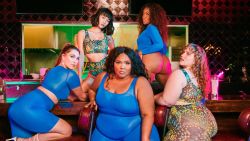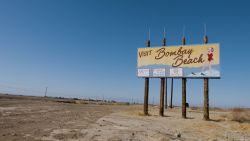Risk Takers 2019: Sometimes a risk works. Sometimes it fails. Sometimes it takes years before you know. See who else made the list.
For author Kevin Kwan, there wasn’t a better place to premiere the film adaptation of his book, “Crazy Rich Asians,” than Los Angeles’ Chinese Theatre. For more than 90 years, it has stood as a symbol of the dreamy elegance of Hollywood. With its Chinese artifacts and architecture, the building is also a symbol of another side of Hollywood — one that has appropriated Asian culture and customs for American audiences.

“Crazy Rich Asians” had a profound impact on American culture and made $239 million at the box office. The movie was a blockbuster. It topped the box office its opening weekend. Its cast and team are visible presences on red carpets. A sequel is in development.
But all of it — the box office success, the cultural impact — pivoted on an audacious decision. Kwan and the film’s producers turned down a lucrative offer from Netflix and opted to have a traditional studio, Warner Bros., release the film.
“We wanted to have that cinematic experience,” Kwan said. “We wanted to have a huge premiere and an opening, and we wanted to play in theaters where families, friends, people could really come together as communities and see this movie.”
Netflix, of course, is a mighty force in Hollywood. It is throwing billions of dollars behind prestige projects and new talent. It has 139 million users worldwide. Its ascension has come as the theater industry is in a period of flux.
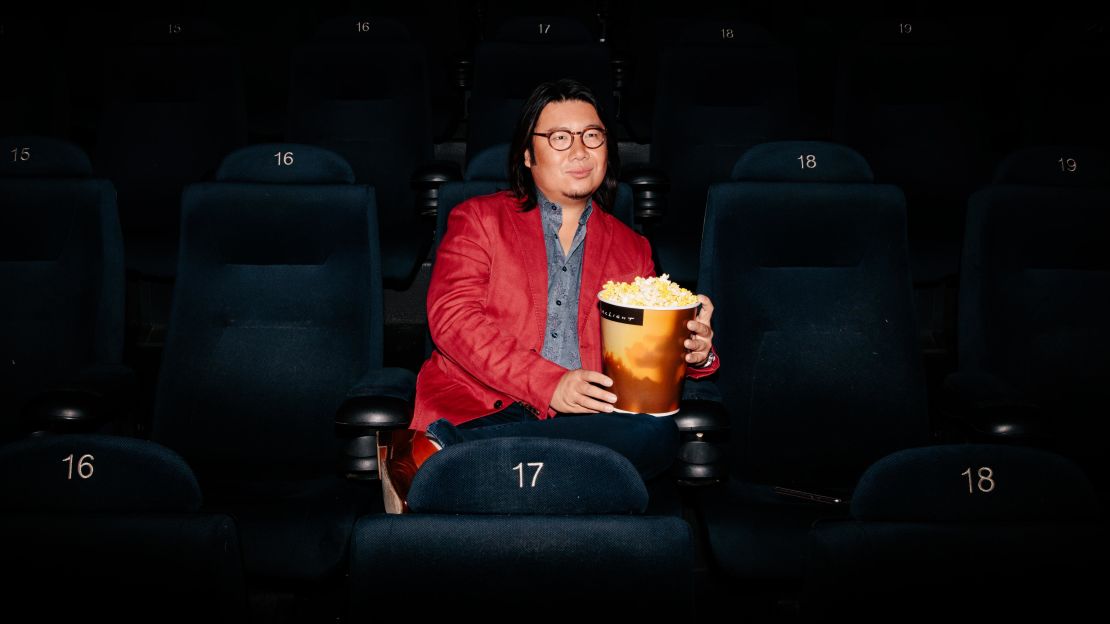
Kwan, wearing a bright red velvet blazer, spoke to CNN Business recently about that frenetic period in 2016 when he had to choose who would distribute the film. “The process was just probably the craziest day of my life,” he said. At one point, Kwan said he didn’t move for 15 minutes while waiting for a conference call from his team, director Jon Chu’s team and producers Nina Jacobson and Brad Simpson, among others.
“We really had to compare that in a very short amount of time with what Netflix was offering,” Kwan said, sitting forward in his chair.
“People were chiming in with their opinions. People were trying to understand the minutiae of the deal,” he added. “There was a ticking clock.”
But after all the deliberation, it was clear to Kwan and Chu that it was really “no decision at all.”
“I knew that we had a responsibility here,” he said. “The movie had become bigger than just the movie itself.”
After the call, Kwan’s phone rang again, but this time it was his director. “What have we done?” Kwan said to Chu. The two were sobbing over the phone.
“We had to make this decision in 20 minutes, but I feel like this is one of these key moments in your life that will really live on in memory,” Kwan said.
High stakes
The choice was a risk for more than Kwan and the film’s creative team, however.
“The decision to make ‘Crazy Rich Asians’ was definitely a gamble,” Kevin Tsujihara, chairman and CEO of Warner Bros., told CNN Business. (CNN and Warner Bros. are both owned by AT&T’s WarnerMedia.)
For Tsujihara, there was no real precedent for a film like “Crazy Rich Asians.” But the studio believed in Kwan’s storytelling abilities and believed audiences were hungry for “great stories that reflect the interesting and diverse world around them.”
“We decided to put our money where our conviction was,” Tsujihara said. “We believed all along that at its heart, this was a great story with universal themes like family, romance and relationships that global audiences would embrace.”
Despite Warner’s 95-year history, Kwan said, bypassing Netflix meant not knowing how widely the film would be distributed. Netflix would have brought a built-in ease knowing how many people it would reach, Kwan said. Plus, there was the money.
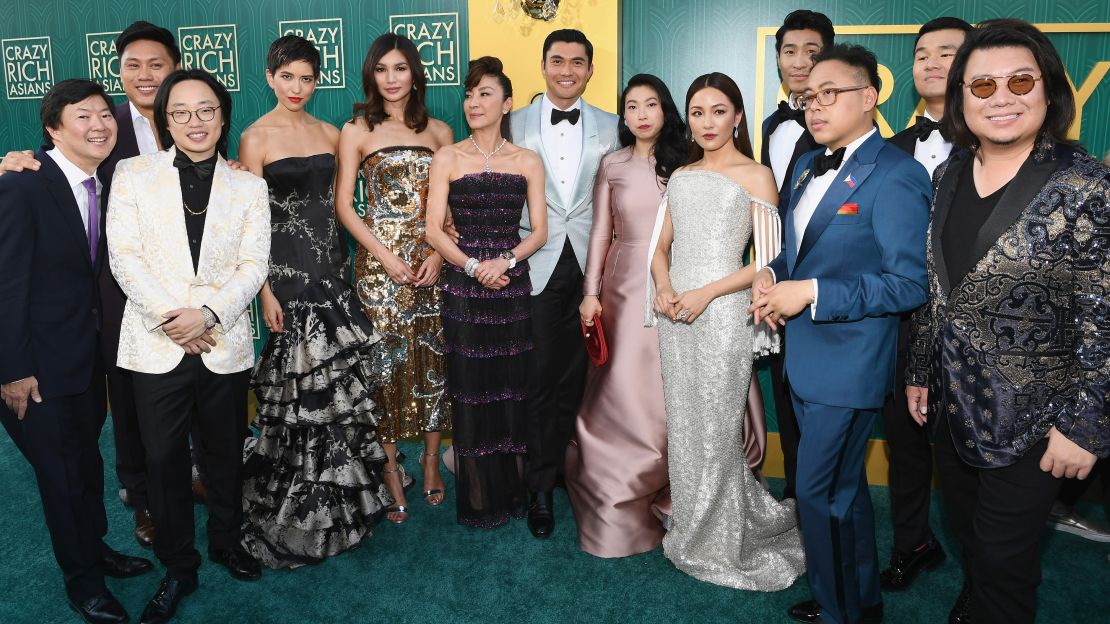
Kwan didn’t say how much was offered, but he told the Hollywood Reporter that if he had taken the Netflix deal, he “could have moved to an island and never worked another day.”
More from Risk Takers 2019
Kwan felt that “Crazy Rich Asians” needed to show established results if it wanted to help change Hollywood. “We still live in a world and in an industry where people want to see the proof in the box-office numbers,” he said. “We have to be able to show that this movie, this risk, can become a tangible success.”
Anxious to see how audiences would receive the film, Kwan and a few actors snuck into screenings in New York during opening week.
“Just to see these theaters completely packed on a weekday with all types of people glued to the screen, laughing, cheering, crying. That for me was a moment I knew like, this is working,” he said.
The payoff
“Crazy Rich Asians” made $26.5 million its opening weekend, which exceeded industry expectations, but it didn’t stop there, topping the US box office three weekends in a row. The film kept rolling through word of mouth. It had a reported budget of just $30 million.
“The film’s box office returns marked a watershed moment for a film with an all-Asian cast,” said Paul Dergarabedian, senior media analyst at Comscore. “It single-handedly brought the rom-com back to its former glory.”
It was also a milestone for Asian actors and directors. More than 70% of more than 3,600 speaking characters across the top 100 films in 2017 were white, while only 4.8% were Asian, according to data from USC’s Annenberg Inclusion Initiative. The numbers were even worse for Asians behind the camera. USC Annenberg found that only 3.6% of directors of the top 100 films of 2018 were Asian.
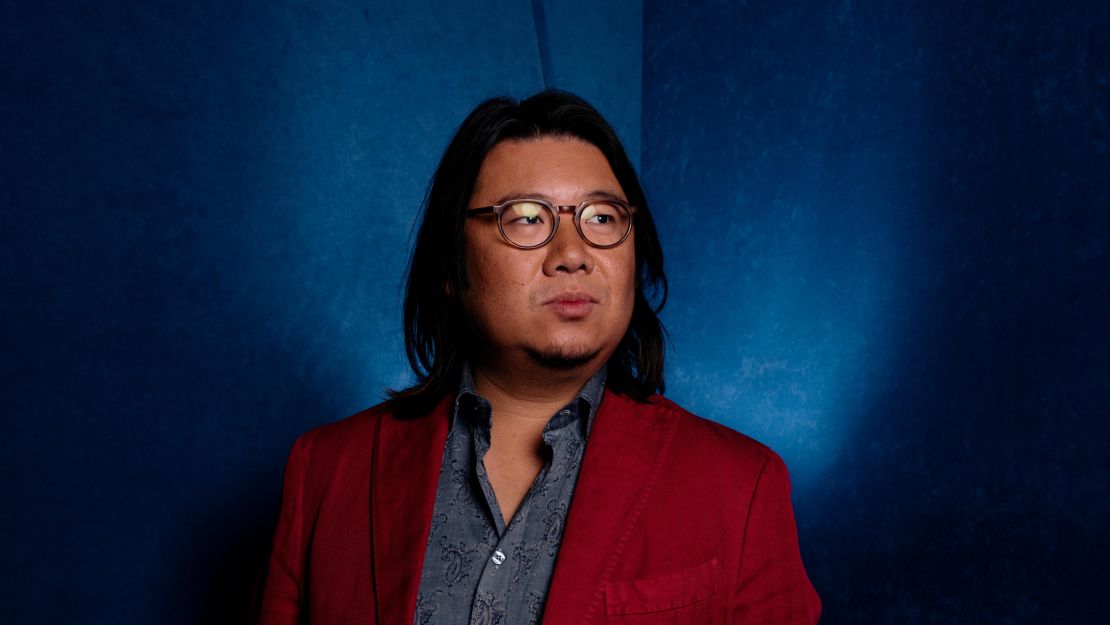
Los Angeles Times film critic Justin Chang said the film helped change the perception of diversity and representation in Hollywood, but that it will “be some time before we see the rewards of that.”
“It shouldn’t be a revelation to anyone that there are underserved audiences of color out there who would like to see themselves, among others, represented onscreen,” Chang said. “Every ‘surprise’ success, whether it’s a ‘Crazy Rich Asians’ or a ‘Searching,’ or Bing Liu’s excellent documentary ‘Minding the Gap,’ helps chip away at those misperceptions a little bit.”
For Tsujihara, who is the first Asian-American studio head, making the film under the Warner Bros. banner was personally significant.
“Seeing a film like this as a kid would have been great,” he said. “It would have really shown the power of representation — one hand, our families are just as crazy as everyone else’s, but on the other hand, we’re not just like everyone else and that’s cool, too.”
He added, “The more we can normalize diversity and remove the concept of ‘otherness,’ the better off we’ll all be.”
The most enduring legacy of “Crazy Rich Asians” will be if studios are inspired to green-light more movies like it.
“I feel like, especially within the Asian community, creative people have a really, really tough road to climb,” Kwan said. “We wanted to do something that could show that, you know what? Risks really, really do pay off.”
Next from Risk Takers 2019: Stores live in fear of Amazon. The Kohl’s CEO embraced it








